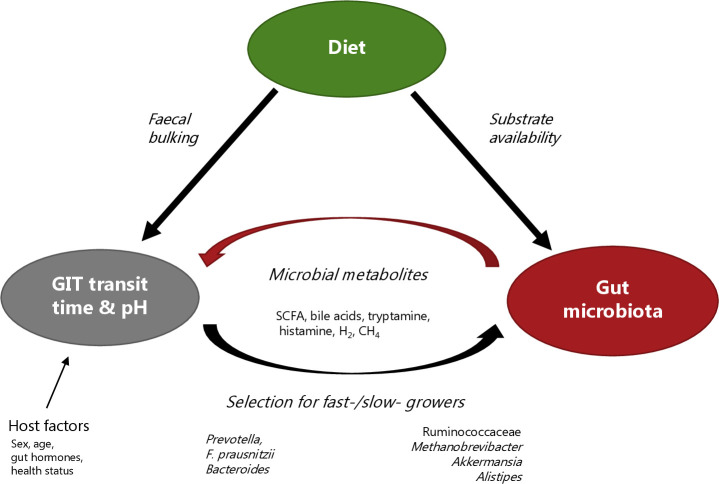Figure 1.
Illustration of the complex interplay between diet, gut microbiota and gut transit time. Diet can directly affect gastrointestinal motility, especially dietary fibre and osmotically active foods can increase the faecal bulk and thereby accelerate gut transit time. Diet can also affect gut transit time by dictating the substrate availability to the gut microbiota. As a result, the gut microbiota produces metabolites such as short-chain fatty acids (SCFA), secondary bile acids, tryptamine, histamine, H2 or CH4. These microbial-derived metabolites can stimulate gastrointestinal motility and thereby impact gut transit time. In addition, gut transit time affects the gut microbial composition and metabolism and consequently the gut environment (eg, pH). The relation between the gut microbiota and the gut transit time is therefore bidirectional. In addition, host factors including gut hormones, gender, age, health status and physical activity also affect the gut transit time. GIT, gastrointestinal tract.

